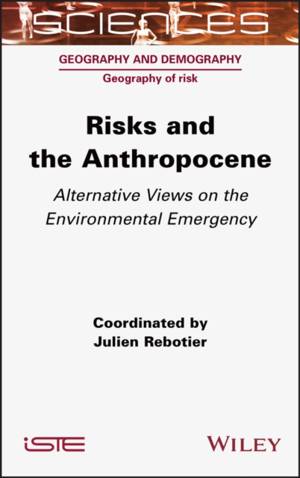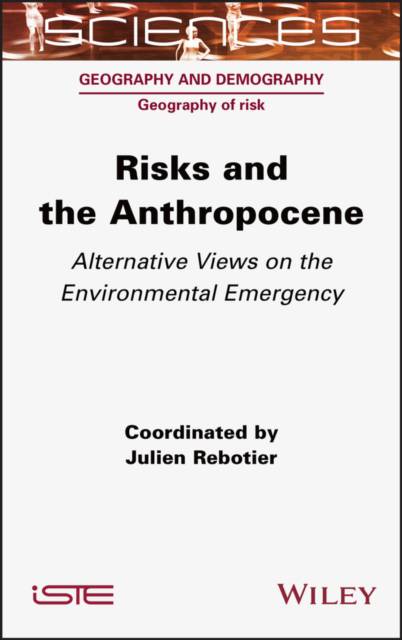
- Afhalen na 1 uur in een winkel met voorraad
- In januari gratis thuislevering in België
- Ruim aanbod met 7 miljoen producten
- Afhalen na 1 uur in een winkel met voorraad
- In januari gratis thuislevering in België
- Ruim aanbod met 7 miljoen producten
Risks and the Anthropocene
Alternative Views on the Environmental Emergency
Julien RebotierOmschrijving
The Anthropocene refers to all societies' current era of environmental challenges. For the social sciences, the Anthropocene represents a historical "moment" with huge potential: it offers people new ways of considering the human condition, as well as how they interact with the rest of the living world and with the planet on all levels. At the turn of the 21st century, the idea of the Anthropocene burst onto the older, diverse and varied scene of risk studies.
This "new geological era", which is entirely created by humanity, went on to revive our understanding of environmental issues, as well as the analysis of the social and political problems that constitute risk situations.
Drawing together contributions from specialists in social sciences concerning risks and the environment, Risks and the Anthropocene explores the advantages that the idea of the Anthropocene can offer in understanding risks and their management, as well as the limitations it presents.
Specificaties
Betrokkenen
- Auteur(s):
- Uitgeverij:
Inhoud
- Aantal bladzijden:
- 272
- Taal:
- Engels
Eigenschappen
- Productcode (EAN):
- 9781789450415
- Verschijningsdatum:
- 19/04/2022
- Uitvoering:
- Hardcover
- Formaat:
- Genaaid
- Afmetingen:
- 156 mm x 234 mm
- Gewicht:
- 544 g

Alleen bij Standaard Boekhandel
Beoordelingen
We publiceren alleen reviews die voldoen aan de voorwaarden voor reviews. Bekijk onze voorwaarden voor reviews.









